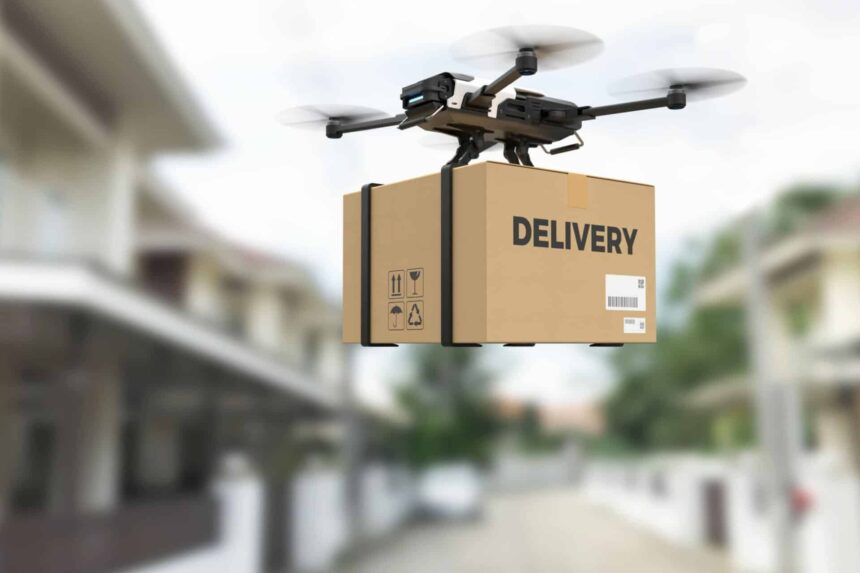Is Nigeria Ready for Drone Deliveries? The Future of Logistics
Nigeria is Africa’s largest economy by many measures, with a growing tech scene, bustling cities, and a rising demand for faster delivery of goods. Drone technology promises to change how items move from warehouses to customers. But the question remains clear: is Nigeria ready for drone deliveries? The answer is not a simple yes or no. It is a thoughtful mix of opportunity, challenges, and a clear path forward.
- Is Nigeria Ready for Drone Deliveries? The Future of Logistics
- Why drones could change logistics in Nigeria
- Infrastructure and regulatory landscape
- Technology readiness and the market
- Case studies of Nigerian delivery companies and how they could use drones
- What the company can do now:
- A practical plan:
- What the company can do now:
- A practical plan:
- What the company can do now:
- Key challenges to address
- What makes a successful drone delivery program in Nigeria
- Potential impact on jobs and the economy
- Conclusion
Why drones could change logistics in Nigeria
Drones are small flying machines that can carry lightweight packages over short to medium distances. In logistics terms they offer several potential benefits:
- speed. Drones can fly over traffic jams and harsh roads, delivering in minutes rather than hours.
- reach. They can access areas with poor road connectivity, such as remote villages or isolated communities.
- cost. For some routes, drones may lower last mile costs, especially where road access is limited or expensive.
- safety and reliability. In some situations drones can reduce human risk by handling dangerous or hard to reach deliveries.
Nigeria has a large and growing consumer base that expects faster service. E commerce is expanding, and many people rely on deliveries for essentials like medicines, groceries, and small consumer goods. Drones could help fill gaps where traditional delivery is slow or unreliable, especially in densely populated cities during peak times or in regions with limited infrastructure.
Infrastructure and regulatory landscape
A key factor for drone readiness is the regulatory framework. Nigeria has taken steps in this direction. The Nigerian Civil Aviation Authority (NCAA) oversees drone operations and has set guidelines for unmanned aerial vehicles (UAVs). For commercial drone deliveries to scale, a few areas need clear and practical rules:
- flight permissions and airspace management. Operators need a straightforward process to obtain approvals for specific routes and times.
- licensing and safety standards. Pilots, maintenance crews, and the drones themselves must meet safety requirements.
- privacy and data protection. Delays can occur if privacy concerns are not addressed in how data is collected and stored during deliveries.
- liability and insurance. Clear rules on who is responsible for damages or injuries help build trust with customers and partners.
- drone identification and tracking. Systems that monitor flights improve safety and accountability.
Beyond rules, Nigeria’s infrastructure matters. Reliable power, internet connectivity, and mobile networks support the daily operations of drone fleets. In many cities these systems are robust enough to support small scale drone testing, but larger fleets require consistent, widely available connectivity.
Technology readiness and the market
Nigeria has a growing base of software developers, hardware makers, and logistics startups. Local talent can build, test, and maintain drone systems. Partnerships between startups and established logistics players can de risk the move into drone deliveries.
The market also needs practical use cases. It is not enough to have cool tech; drones must solve real problems. For Nigeria, high demand areas include:
- last mile medicine delivery to pharmacies and clinics, especially in underserved neighborhoods.
- emergency parts and medical supply deliveries to rural clinics.
- time sensitive e commerce orders in cities with heavy traffic.
- agricultural inputs delivery to large farming communities.
Case studies of Nigerian delivery companies and how they could use drones
- A Nigerian e commerce platform with nationwide reach How drones can help:
- on the city edge to door step deliveries for small, lightweight packages.
- same day or next day delivery services for urban customers.
- pick up from regional hubs to reduce transit time.
What the company can do now:
- pilot a small fleet of light weight drones on carefully chosen routes, such as a major city ring road to high demand neighborhoods.
- partner with a logistics provider to integrate drone status updates into the existing app, so customers can track their package in real time.
- use drones for non hazardous items first, to build safety protocols and customer trust.
- set clear delivery windows and customer confirmation steps to reduce failed deliveries.
A practical plan:
- start with a 6 month pilot in Lagos or Abuja, focusing on deliveries under two kilograms.
- work with regulators to obtain the necessary approvals for specific corridors.
- monitor performance and safety metrics, including on time delivery rate and accident rate.
- A regional pharmacy chain How drones can help:
- fast delivery of urgent medicines to clinics and small towns, where road networks can be slow.
- improved stock management by moving high demand drugs from central warehouses to regional outlets quickly.
What the company can do now:
- build a closed loop system where pharmacies place orders through a mobile app and drones carry only approved medicines with proper cold chain if needed.
- use drones for non controlled items first to test safety and regulatory compliance.
- implement strict temperature control where required and provide real time temperature tracking during flight.
A practical plan:
- identify 5 clinics within a 20 kilometer radius that have high patient demand.
- run a six month trial focusing on late afternoon to early evening deliveries when traffic is worst.
- develop a robust contingency plan for weather disruptions and no fly zones.
- A courier and last mile service How drones can help:
- alleviate peak time pressure in big cities.
- deliver small parcels that often require a second attempt due to traffic.
What the company can do now:
- create drone pickup points at existing service centers so customers can drop off items easily.
- offer drones as an option for customers who need fast delivery, creating a tiered service.
- design a simple return process for items collected by drone, including a secure drop off area at the customer’s home.
A practical plan:
- run a pilot in a major city with a mix of residential and business districts.
- collect feedback from customers to refine the delivery process and to identify best routes.
- track metrics such as delivery speed, customer satisfaction, and drone utilization.
Key challenges to address
- safety and airspace use. Clear rules and defined routes are essential to prevent accidents and conflicts with manned aircraft.
- weather. Nigerian weather can be unpredictable. Drones must be able to handle heat, rain and wind, or flights may be cancelled.
- privacy and security. People are concerned about cameras and tracking. Operators should be transparent about data use and implement privacy safeguards.
- infrastructure reliability. Power supply and network connectivity affect drone operations. Operators should plan backup power and offline data storage.
- public acceptance. Education campaigns and visible safety measures help build trust with customers and communities.
What makes a successful drone delivery program in Nigeria
- strong regulatory alignment. Work closely with NCAA and other authorities to ensure all operations are compliant from day one.
- clear use cases. Focus on specific routes and item types that benefit most from drone delivery.
- staged pilots. Start small, measure results, and expand gradually as safety, efficiency, and customer demand demonstrate value.
- local partnerships. Collaborate with local logistics partners, universities, and hardware suppliers to tailor the solution to Nigerian realities.
- safety culture. Invest in training, routine maintenance, and clear safety protocols.
Dont miss: Winning Zero-Click Searches: SEO Strategies for Nigerian Brands in 2025
Potential impact on jobs and the economy
Drones can create new kinds of jobs, from drone maintenance technicians to flight planners and data analysts. They can also complement existing delivery roles by taking on high speed, low weight tasks, freeing human workers to handle higher value activities. In the long run, drone deliveries could improve access to essential goods in underserved areas and reduce delivery times for urban residents.
What readers should know about the future
- drone deliveries in Nigeria are not a nationwide slam dunk. They work best when applied to specific routes, item types and time windows where they bring clear benefits.
- success depends on governance. Regulators, operators and communities must work together to build a safe and trusted system.
- regional adaptation matters. The Nigerian market is diverse; what works in Lagos may look different in Enugu or Kano. Programs should be customized to local needs.
Conclusion
Is Nigeria ready for drone deliveries? The short answer is: it depends. There is enough momentum in technology, a growing e commerce market, and a regulatory path that supports careful experimentation. With well planned pilots, strict safety standards, and strong local partnerships, drone deliveries can become a valuable part of Nigeria’s logistics future. The journey will require patience, continuous learning, and a shared commitment to safety and service. If Nigeria keeps moving on these fronts, drones could soon be a common sight delivering items quickly and safely to customers across the country.
Image source: Techpoint.africa






